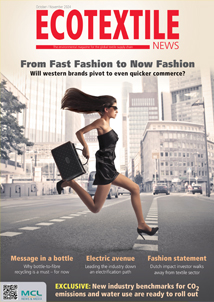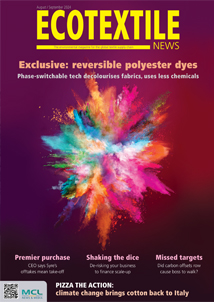TEXAS – Industry non-profit Textile Exchange is seeking feedback over the next two months on the latest versions of its Recycled Claim Standard (RCS) and Global Recycled Standard (GRS).
The Vancouver-based organisation says it will welcome the thoughts of industry stakeholders until the 31st May, at which point suggestions will be considered and the standards revised once more.
“Your feedback will help to inform our revision of the GRS/RCS this year. We will research your issues submitted during the open feedback period and, in collaboration with the International Working Group, we will be creating a Draft GRS 5.0 and Draft RCS 3.0 that will also be released for public comment at a later time,” Textile Exchange said in a statement.
Both the RCS and GRS are international, voluntary standards that set requirements for third-party certification of recycled input and chain of custody. The shared goal of them is to increase the use of recycled materials, though the GRS poses additional criteria covering social and environmental processing requirements and chemical restrictions.
The two standards help establish an aligned definition on the integration of recycled fibres within fabric. With this, brands and retailers gain the assurance that the ‘sustainable’ materials they’re utilising are recognised as such across the industry.
There are six key points across the two standards. The first relates to ‘verifying recycled material’, and asks that materials meet the ISO definition of recycled both in relation to pre- and post-consumer content.
The second is ‘responsible production’ and aims to ensure that GRS-certified sites meet strict social and environmental requirements and that chemicals that have the potential “for harm” are not permitted.
The third point, ‘chain of custody’, establishes an expectation of transparency from certified products and sites, in particular that the materials are traceable from the recycler to the finished goods.
The fourth point is ‘credible certification’ and states that a professional third-party certification body audits users of the standards across each stage of the supply chain. If this is met, the fifth point of ‘confident communication’ stresses that certified products and sites should label their goods and services as being compliant.
The final point from Textile Exchange is that both standards are managed with input from recyclers, suppliers, brands and retailers, which ultimately will inform the standards’ definitions going forward.













































